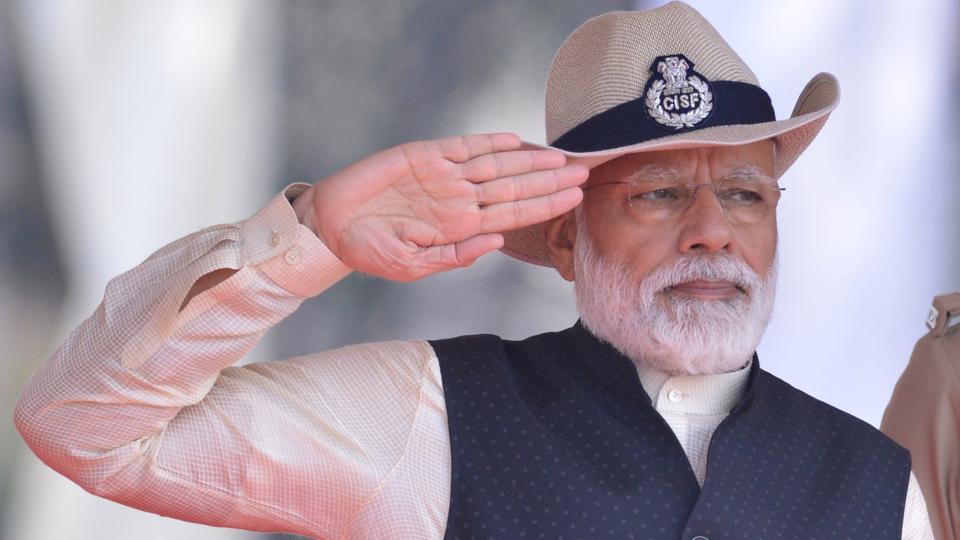Relevant for General Studies Paper 2
While excessive moralising and equivocation were the hallmarks of the earlier era, the prime minister has introduced a dash of vim into Indian foreign policy

- Over the past five years, analysts have bickered over how much of a divergence the Narendra Modi administration has exhibited in foreign policy. As with all things Modi, opinions seem to lie at both ends of the spectrum with plenty of room in the middle.
- On the one hand are those who believe that the prime minister has merely tinkered with the policies of his predecessors and there is nothing remarkable about Indian foreign policy in this era of “Hindu nationalism” — the pragmatic elements of running a state has tamed the exuberant rhetoric of the Modi and his foreign policy team.
- On the other hand are those who see a distinctly new foreign policy path being charted out by this yugpurush (the greatest in one’s era) of a prime minister. A sea change in attitude is posited in relations with India’s neighbours and partners, and incidental events are fielded as evidence of a Modi doctrine that fundamentally alters the basic structure of Nehruvian foreign policy.
- A closer study of Modi’s foreign policy indicates a third position — of a desire to not repeat the errors of the past, yet constrained by a hidebound bureaucracy and the intellectual shortcomings of India’s foreign policy apparatus. More out of necessity than design, the Modi administration has chosen a gradual divergence from India’s non-aligned past but promises a much greater variance to come.
- The sharpest example of this small yet radical foreign policy shift is seen in India’s ties with Israel. For decades, even after the establishment of full diplomatic relations in 1992, New Delhi treated Jerusalem like a mistress, accepting favours without recognition. Modi pulled the curtains on the relationship with a stand-alone trip to Israel in 2017 but his embrace fell short of being wholehearted as India continued to vote against Israel in the United Nations and maintains its embassy in Tel Aviv. Moreover, India has kept up its paeans to solidarity with the Palestinian people, which serves little purpose other than being an annoying vestige of Gandhian moralpolitik.
- In some ways, the relationship with the United States is even more intriguing. Most of the foreign policy commentariat accepts that America is India’s most important partner in the foreseeable future, yet there remains in New Delhi a symbolic sliver of stubborn anti-Americanism. As India makes bigger, more sensitive defence purchases from American vendors, enters into logistical agreements with the US military, and resuscitates the Quad grouping that also includes Japan and Australia, it still sits with Russia and China in a trilateral that is at odds with the rest of its strategy. New Delhi’s ambivalence sends mixed signals to international capitals about Indian intentions and its reliability as an ally in case the balance of power shifts for the worse in East Asia.
- A third major departure from Nehruvian guidelines has been in the Modi government’s handling of the threat from Pakistan and its terrorist proxies. Like its predecessors, this administration too has used diplomatic pressure against Islamabad, arguably with greater success, yet has not hesitated to use military force against terrorist camps across the border and called Islamabad’s nuclear bluff at least twice while remaining open to peace initiatives.
- On the other security front, with China, India stands far behind in most benchmarks of development and power. In preparation for the worst eventuality, Modi has focused on substantially improving infrastructure near the border without concern for Beijing’s sensibilities. This has been a glaring weakness in all previous administrations’ resolves since 1947 that this administration has ameliorated. A glimpse of the new ease on the infrastructure front was seen during the standoff at Doklam. At the same time, India has been less hostile than the West to Chinese business to avoid provocation and to encourage a fruitful conversation.
- It is true that India under Modi has kept all doors open in its dealings with foreign powers in a manner that some might misconstrue as more non-alignment. The prime minister has not substituted inaction for recklessness, understanding the arguments for India’s behaviour so far. However, it is in the boldness of his actions that a new picture emerges that not only outlines a different mode of thinking from the moribund Nehruvian school of Indian foreign policy but clearly indicates the early makings of a Modi doctrine.
- While excessive moralising and equivocation were the hallmarks of the earlier era, the prime minister has introduced a dash of vim into Indian foreign policy. Modi’s interjection, however, is no novel creation — it is merely the country’s awakening to machtpolitik in international affairs and a desire to wield some of it. To this end, the administration needs a vibrant community of aides, bureaucrats, and researchers free of old ideological commitments to consider the full implications of its bold new policies. It is this lack that has so far inadvertently camouflaged the Modi administration’s foreign policy intentions and led many to underestimate the potential of what has passed over the past five years.

